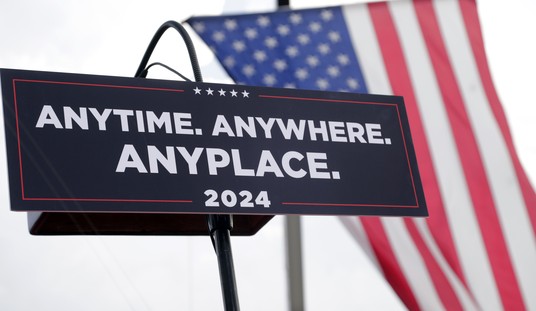Americans have seen the reports of British students violently protesting the hike in college tuition planned by London’s governing coalition. Fewer may have seen the report of a protest by Muslims against the national moment of silence observed on Armistice – or, in Britain, Remembrance – Day, 11 November.
According to the UK Daily Mail, the protesters burned a model of a red poppy – the symbol of remembrance for World War I – and chanted “British soldiers burn in hell!” Says the Mail: “They held banners which read ‘Islam will dominate’ and ‘Our dead are in paradise, your dead are in hell’.” The Muslim protest was countered by an English Defence League protest, with London police keeping the two groups separated.
Britain today still has a productive demographic that sees value in things like restoring fiscal responsibility to government, commemorating Britain’s national identity and history, and maintaining public order. But that demographic is increasingly under siege.
Among Europe’s members of the G-8, Britain is also increasingly isolated in the rush of the others – Germany, France, Italy – to secure agreements with Russia. The Cameron government is seeking to improve Britain’s long-frosty relations with Russia. But there’s a sense of restricted latitude in this move: a lurking idea that Britain might be late to the table, and might need Russia’s goodwill more than vice versa. Indeed, before the October visit of Foreign Secretary William Hague to Moscow, his Russian counterpart, Sergei Lavrov, averred that Moscow expected Britain to “make the first move” to improve relations.
Britain is by no means out of options. But she’s just about out of margin. One reason for that, of course, is the all-but-explicit repudiation by Barack Obama of the “special relationship” between the US and UK. Britain is no longer a true global empire or the sheriff of the seas, but she’s still an island kingdom a few short miles across the Channel from Europe. To maintain political independence, she must either cultivate her own power or obtain the backing of a country that does. The close connection with America has been Britain’s high card for the last half century.
But there was a Britain before there was a global America. The pivot toward Russia represents the reemergence of an older pattern: one in which Britain used continental alliances to maintain a regional balance of power. Britain and France have tempered their courting of Russia with a new bilateral defense pact between the two of them, concluded last week. As NATO dismantles its raison d’etre, the old fault lines of alliance and wagon tracks of diplomacy reappear. The factors in why France and Britain made this agreement, but Germany is not part of it, are the same ones that obtained before there was a NATO or a global America: some alliance is necessary, but a tripartite pact with Germany would alarm Russia too much.
Germany, naturally, prefers to retain a privileged central position anyway; for Berlin, the right note was struck with Angela Merkel’s participation in October’s three-way talks with Nicolas Sarkozy and Dmitry Medvedev. But Germany is deeply embedded in Russia’s oil and natural gas empire too. The Germans have their own growing ties to Russia.
The British soul may be much like ours, but British geography is a stern taskmaster. As NATO and the special relationship fade, her leaders have tough choices to make. Even in an earlier era of technology, Britain could never stand alone. She required alliances and strategies; like a ship of state moored to Europe, she needed a network of bumpers and a way of keeping a steady strain on the lines to prevent collision or being cut adrift. Now her post-World War II holiday from that history is coming to an end.
As it does, Britain finds herself not so much bolstered by a stiff upper lip as mired in a protruding lower one. Only Britain can determine whether she will sink into that mire and become something else: a fractious and stupid society, paranoid, entitled, and immobilized. It doesn’t have to happen; I’m pulling for the stiff upper lip to reclaim its territory.
If it does happen, Americans are in for times far more “interesting” than any we’ve had. We’ve never lived in a world in which there was not an anchor of preferential goodwill towards us in Western Europe. Throughout most of our history, that anchor has been Britain. If that anchor is weighed, we will find out just how small, today, the Atlantic Ocean really is.
J.E. Dyer blogs at The Green Room, Commentary’s “contentions” and as The Optimistic Conservative. She writes a weekly column for Patheos.
This post was promoted from GreenRoom to HotAir.com.
To see the comments on the original post, look here.








Join the conversation as a VIP Member